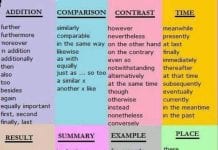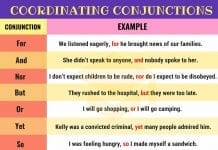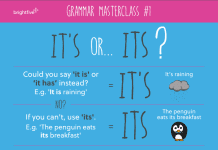
Simply put an infinitive is the basic form of a verb, meaning it is without inflection. When an infinitive is used the verb does not end in “ing” and the word “to” is placed in front of the word. In this case the word “to” is being used as a regular word, not as a preposition.
Don’t get bogged down in grammar confusion. It’s just a word that would usually be used as a verb, without “ing” on the end and it follows the word to.
For example I like to eat, instead of saying I like eating. Or, I want to ski this weekend, instead of saying I want to go skiing this weekend. The meaning of the sentence is not changed, it’s just another way to say the same thing.
We can also take the infinitive form of a verb and put a noun in front of it. Here’s a list of nouns, along with an example of how they could be followed by an infinitive verb.
Remember, it’s noun+ to + infinitive.
Here’s a list of nouns that can be used with an infinitive.
1. Chance – I have a chance to see my mom while I am in town.
2. Goal – It is my goal to find a new school for my daughter this year.
3. Suggestion – Do you have any suggestions to help me figure out what to do this weekend?
4. Proposal – Do you have the proposal to fix the sprinkler system?
5. Dream – It is my dream to go to New York.
6. Attempt – I would like you to attempt to go to school today.
7. Ability – Do you have the ability to give me a discount?
8. Choice –We have a choice to make in deciding if we should get the boss involved.
9. Intention – I’m sorry, it was not my intention to offend anyone.
10. Promise – I have already promised to take Mary to the dance.
11. Tendency – She has a tendency to blow things out of proportion.
12. Opportunity – I am giving you the opportunity to become a member of our very exclusive club.
13. Eagerness – The dog has a very strong eagerness to please his owner.
14. Attempt – I will attempt to call them one last time before giving away their spot.
15. Arrangement – We have made an agreement to stay here until the end of the week.
16. Determination – My favorite quality about him, is his determination to get the job done at all cost.
17. Need – If you need to get something to eat, do it now while we’re stopped.
18. Ambition – It is my ambition to work for a top tech company.
19. Refusal – This is not a refusal to move forward, I just want to understand my options.
20. Desire – I have a strong desire to go to all of the games this season.
21. Reminder – Do you mind giving me a reminder to wake up early tomorrow.
22. Choice – It was your choice to play football instead of baseball.
23. Failure – You have been accused of failure to report inappropriate behavior.
24. Request – I would like to request to go home early next week.
25. Permission – Can I have your permission to talk to your classmates about this matter?
26. Motivation – What is your motivation to do this job?
27. Recommendation – The doctor gave me the recommendation to rest for the next 5 days.
28. Plan – I plan to go camping next weekend with you.
29. Preparation – We are currently in preparation to launch the project by the end of the year.
30. Reluctance – I’m not sure why he has such a strong reluctance to talk to you about the situation.
31. Requirement – It is a requirement to check in before you start working.
32. Willingness – He showed a total lack of willingness to help.
Sometimes there is a linking verb in between the noun and the infinitive.
It looks like this noun+ linking verb + to+ infinitive
33. Offer – I have the offer for them to build the playground.
34. Recommendation – I have sent the recommendation for her to become a member of our team to the head coach.
35. Advice – My advice for her was to sit down and have a face to face conversation.
36. Appeal – We are making an appeal for you to give as much as you can to help the victims.
37. Order – In order for you to move forward we need you to sign the agreement.
























Some of your examples aren’t nouns.